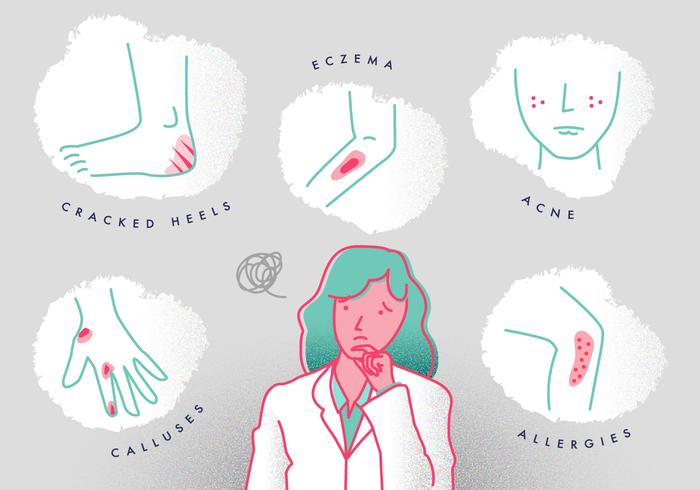Myths And Facts Regarding Acne: Debunking Common Misconceptions
Myths And Facts Regarding Acne: Debunking Common Misconceptions
Blog Article
Material Create By-Cullen Watkins
You could assume that delighting in chocolate or oily foods is the origin of your acne, yet that's just one of numerous myths swirling around this typical skin disease. Actually, acne largely stems from clogged hair roots, not your last treat. Misunderstandings like these can lead you to embrace inefficient skin care techniques that might also aggravate your scenario. As you browse the facts behind acne, you'll uncover understandings that could change your approach to skin care and help you achieve more clear skin. So, what actually exists underneath the surface?
Common Myths Regarding Acne
When it involves acne, lots of people believe in usual myths that can lead to complication and stress. One prevalent misconception is that eating delicious chocolate or greasy foods triggers acne. While diet regimen can influence skin wellness, the direct web link between certain foods and acne isn't as clear-cut as many believe.
https://stylecaster.com/mariska-hargitay-plastic-surgery/ is that you ought to scrub your face vigorously to improve breakouts. In truth, aggressive rubbing can aggravate your skin and worsen acne.
You may likewise believe that acne just influences young adults, however adults can experience it too, typically due to hormonal modifications or tension. Some people believe that sun tanning can improve acne, but sunlight exposure can actually bring about skin damage and intensify breakouts over time.
Lastly, lots of think that utilizing extreme products will certainly get rid of acne promptly. Nevertheless, these items can strip your skin of its natural oils, causing boosted irritability and even more outbreaks.
Scientific Details Behind Acne
Comprehending the scientific truths behind acne can empower you to tackle this typical skin problem better.
Acne occurs when hair roots come to be obstructed with oil, dead skin cells, and microorganisms. This procedure typically begins with an overflow of sebum, the oil your skin naturally produces. Hormone changes, particularly during the age of puberty or menstruation, can activate this excess oil.
Germs known as Propionibacterium acnes prosper in these stopped up pores, resulting in inflammation. When your body immune system reacts, it can cause soreness and swelling, leading to those troublesome acnes or cysts.
Genetics also play a role; if your parents had acne, you may be a lot more vulnerable to it.
Diet regimen and tension degrees can influence acne too, however research is still advancing in these areas. While enjoying greasy foods won't straight cause outbreaks, a well balanced diet regimen can support your skin health and wellness.
Also, managing tension can minimize hormone variations that might aggravate acne.
Tips for Taking Care Of Acne
Managing acne successfully calls for a combination of everyday skin care routines and way of living changes. Beginning by developing a regular skincare regimen. Clean your face two times a day with a mild, non-comedogenic cleanser to eliminate dust and excess oil. Stay clear of rubbing too hard, as this can aggravate your skin and get worse acne.
Next off, include items containing salicylic acid or benzoyl peroxide to help stop breakouts. Always follow up with a light-weight, oil-free cream to keep your skin hydrated. Don't forget sunscreen; select non-comedogenic choices to shield your skin from UV damages without clogging pores.
Past skin care, pay attention to your diet regimen. Limit sweet and oily foods, and concentrate on fruits, vegetables, and entire grains. Staying moisturized is crucial, so beverage plenty of water throughout the day.
In addition, handle stress through activities like yoga exercise, meditation, or workout, as tension can set off breakouts.
Finally, stay clear of choosing or standing out pimples. This can bring about scarring and more inflammation. If your acne continues, speak with a skin doctor for personalized therapy alternatives.
how long for botox to work
To conclude, it's necessary to separate reality from fiction when it concerns acne. By disproving typical myths, you can much better understand your skin and make notified selections for your skin care routine. So, why continue to count on obsolete ideas when the reality can equip you? Accept much healthier practices, concentrate on gentle cleansing, and remember that taking care of acne is a trip. With the ideal understanding, you're one step more detailed to clearer, healthier skin.
